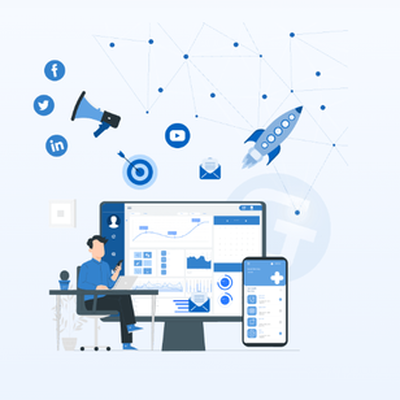Transforming Healthcare: The Power of Telehealth App Development
Body
Introduction
In recent years, telehealth app development has emerged as a game-changer in the healthcare industry. Leveraging the power of technology, these applications facilitate remote medical consultations, monitoring, and even treatment delivery. This article delves into the nuances of telehealth app development, shedding light on its significance, challenges, and promising future.
The Rise of Telehealth App Development
Telehealth app development has witnessed exponential growth, driven by factors such as increasing smartphone penetration, improved internet connectivity, and the demand for convenient healthcare solutions. These applications encompass a wide range of services, including virtual consultations, remote patient monitoring, prescription management, and mental health support.
Meeting Patient Needs Anytime, Anywhere
One of the primary advantages of telehealth apps is their ability to provide healthcare services remotely, transcending geographical barriers. Patients can access medical advice and support from the comfort of their homes, eliminating the need for physical visits to healthcare facilities. This convenience is particularly beneficial for individuals with mobility issues, chronic conditions, or those residing in rural areas with limited access to medical care.
Enhancing Access to Specialists
Telehealth app development enables patients to connect with specialists and healthcare providers beyond their local vicinity. This expanded access to expertise is instrumental in ensuring timely diagnosis, treatment, and management of various medical conditions. Whether it's consulting with a renowned cardiologist or seeking advice from a mental health professional, telehealth apps bridge the gap between patients and specialists, irrespective of geographical constraints.
Empowering Remote Patient Monitoring
Another significant aspect of telehealth app development is remote patient monitoring, which involves the continuous tracking of vital signs, symptoms, and treatment adherence. Through wearable devices and IoT-enabled sensors, patients can transmit real-time health data to healthcare providers, enabling proactive interventions and personalized care plans. This remote monitoring capability is particularly valuable for managing chronic diseases, post-operative care, and monitoring recovery progress.
Overcoming Barriers to Adoption
Despite its transformative potential, telehealth app development faces several challenges, including regulatory hurdles, data security concerns, and resistance from traditional healthcare systems. Addressing these barriers requires collaborative efforts from policymakers, healthcare providers, technology vendors, and regulatory bodies to establish clear guidelines, ensure data privacy, and promote interoperability.
The Future Landscape of Telehealth
Looking ahead, telehealth app development is poised for continued growth and innovation. Advancements in artificial intelligence, machine learning, and telecommunication technologies will further enhance the capabilities of these applications, enabling predictive analytics, personalized medicine, and seamless integration with electronic health records (EHRs). As telehealth becomes increasingly integrated into mainstream healthcare delivery, it has the potential to revolutionize the way we access and experience healthcare services.
Telehealth App Development: FAQ's
What are the key features of a telehealth app? Telehealth apps typically offer features such as virtual consultations, appointment scheduling, secure messaging, prescription management, and remote monitoring capabilities.
How secure are telehealth apps for transmitting sensitive health data? Telehealth apps prioritize data security and compliance with regulations such as HIPAA (Health Insurance Portability and Accountability Act) to safeguard patients' sensitive health information.
Can telehealth apps replace traditional in-person medical consultations entirely? While telehealth apps offer convenience and accessibility, they are not intended to replace all in-person medical consultations. Certain medical procedures and examinations still require physical presence and hands-on evaluation by healthcare professionals.
Are telehealth apps suitable for mental health support and therapy sessions? Yes, telehealth apps provide a platform for mental health professionals to offer counseling, therapy sessions, and support groups virtually, catering to individuals' mental well-being.
How do telehealth apps ensure quality care and accountability? Telehealth apps prioritize user feedback, ratings, and reviews to maintain quality standards and accountability. Additionally, healthcare providers adhere to professional ethical standards and regulatory guidelines when delivering services via telehealth platforms.
What are the future prospects of telehealth app development? The future of telehealth app development holds immense potential for innovation, with advancements in technology paving the way for predictive analytics, AI-driven diagnostics, and personalized treatment plans tailored to individual patients' needs.
Conclusion
In conclusion, telehealth app development represents a paradigm shift in healthcare delivery, offering convenience, accessibility, and personalized care to patients worldwide. While facing challenges, the relentless march of technology and the commitment of healthcare stakeholders ensure that telehealth will continue to redefine the boundaries of modern medicine.













Comments